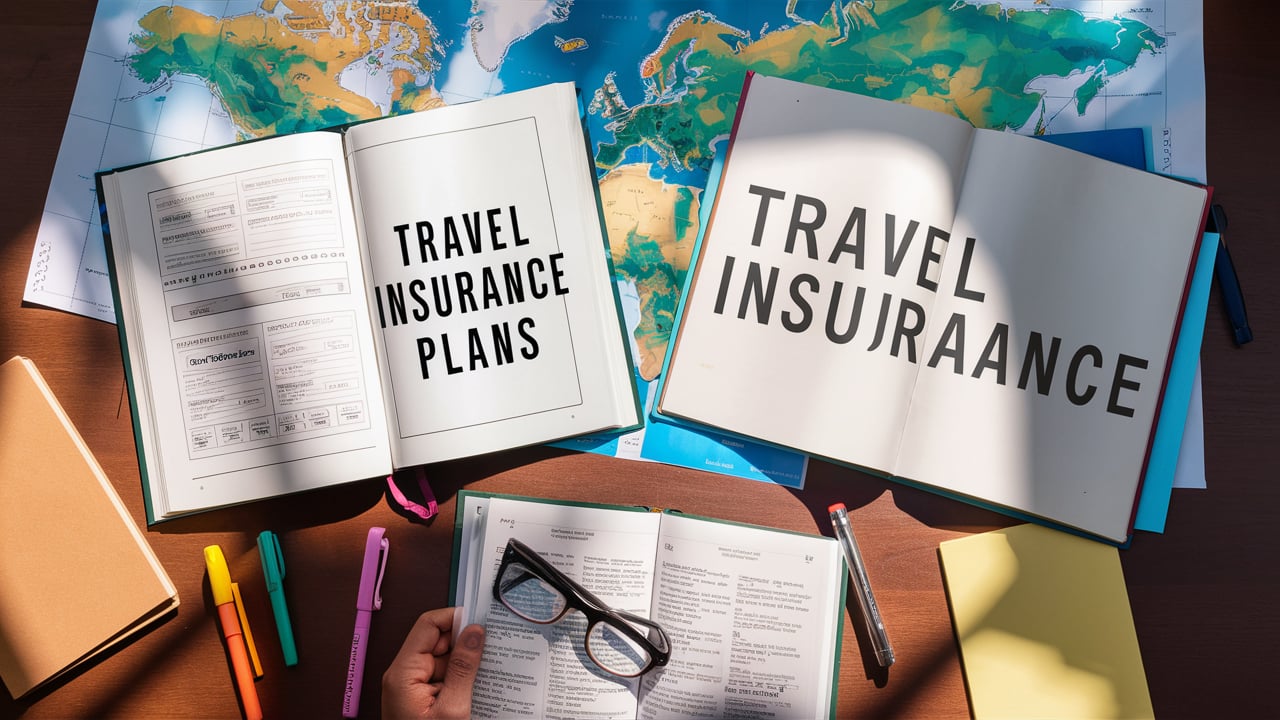Traveling can be an exciting adventure, but unforeseen events can turn a dream vacation into a nightmare. Travel insurance is designed to protect you from financial losses and provide peace of mind. This guide will help you understand the crucial factors to consider when comparing travel insurance plans, ensuring you choose the best coverage for your needs.
Understanding Travel Insurance Basics
Travel insurance typically covers a range of unexpected events, including:
- Trip cancellations and interruptions
- Medical emergencies
- Lost or delayed baggage
- Travel delays
Knowing what each plan offers and how it can benefit you is essential in making an informed decision.
1. Coverage Limits and Exclusions
When comparing travel insurance plans, the first step is to examine the coverage limits and exclusions:
- Coverage Limits: The maximum amount the insurer will pay for covered claims. Ensure the limits are adequate for your needs, especially for medical coverage.
- Exclusions: Specific situations or items not covered by the policy. Common exclusions include pre-existing medical conditions, certain high-risk activities, and events related to terrorism or natural disasters.
2. Medical Coverage
Medical emergencies can be costly, especially when traveling abroad. Look for plans that offer comprehensive medical coverage, including:
- Emergency Medical Expenses: Covers the cost of medical treatment, hospital stays, and medications.
- Medical Evacuation and Repatriation: Covers the cost of transporting you to the nearest adequate medical facility or back home if necessary.
- Pre-existing Conditions: Some plans offer coverage for pre-existing medical conditions. Check the terms and conditions to see if you qualify.
3. Trip Cancellation and Interruption
Trip cancellation and interruption coverage can reimburse you for non-refundable expenses if your trip is canceled or cut short due to unforeseen events. Key aspects to consider include:
- Covered Reasons: Common covered reasons include illness, injury, death of a family member, severe weather, and unexpected job loss.
- Reimbursement Limits: Ensure the plan covers the total cost of your trip, including flights, accommodations, and pre-paid activities.
4. Baggage and Personal Belongings
Lost, stolen, or delayed baggage can ruin a trip. Look for plans that offer adequate coverage for your belongings:
- Lost or Stolen Baggage: Covers the cost of replacing lost or stolen items.
- Baggage Delay: Reimburses you for essential items purchased while waiting for delayed baggage.
5. Travel Delay Coverage
Travel delays can result in additional expenses, such as hotel stays and meals. Check for plans that provide:
- Delay Reimbursement: Covers expenses incurred due to significant travel delays.
- Minimum Delay Period: The minimum time the delay must last to qualify for coverage. This typically ranges from 6 to 12 hours.
6. Adventure and Sports Coverage
If your travels include adventure sports or activities, ensure your plan covers these high-risk activities. Common activities that may require additional coverage include:
- Skiing and snowboarding
- Scuba diving
- Hiking and mountaineering
- Paragliding and skydiving
7. 24/7 Assistance Services
Access to 24/7 assistance services can be invaluable during an emergency. Look for plans that offer:
- Emergency Hotline: A dedicated hotline for medical emergencies, travel assistance, and other urgent needs.
- Concierge Services: Assistance with travel arrangements, restaurant reservations, and other non-emergency services.
8. Insurance Provider Reputation and Customer Service
Choose an insurance provider with a strong reputation and excellent customer service. Consider factors such as:
- Financial Stability: Ensure the company is financially stable and capable of paying claims.
- Customer Reviews: Look for positive reviews and testimonials from other travelers.
- Claims Process: A smooth and efficient claims process is crucial for peace of mind.
Frequently Asked Questions
Q: Can I buy travel insurance after booking my trip?
A: Yes, you can buy travel insurance after booking your trip, but it’s best to purchase it as soon as possible to maximize your coverage, especially for trip cancellation benefits.
Q: Are there travel insurance plans that cover COVID-19?
A: Many travel insurance plans now offer coverage for COVID-19 related expenses, including medical treatment and trip cancellation. Check the policy details to ensure adequate coverage.
Q: How do I file a claim with my travel insurance provider?
A: To file a claim, you typically need to submit a claim form along with supporting documentation, such as receipts, medical reports, and proof of trip cancellation. Contact your provider for specific instructions.
Q: What should I do if I need medical assistance while traveling?
A: Contact your insurance provider’s emergency hotline for assistance. They can help arrange medical care, coordinate payment, and provide guidance on the next steps.
Q: Can I extend my travel insurance coverage if my trip is extended?
A: Many travel insurance plans allow you to extend your coverage if your trip is extended unexpectedly. Contact your provider to discuss your options.
Conclusion
Comparing travel insurance plans requires careful consideration of coverage limits, exclusions, medical benefits, and additional features. By understanding these key factors, you can select a plan that provides comprehensive protection and peace of mind during your travels.
Take your time to compare different plans, and don’t hesitate to seek professional advice if needed. A well-chosen travel insurance plan can save you from significant financial losses and ensure a smooth and enjoyable trip.
